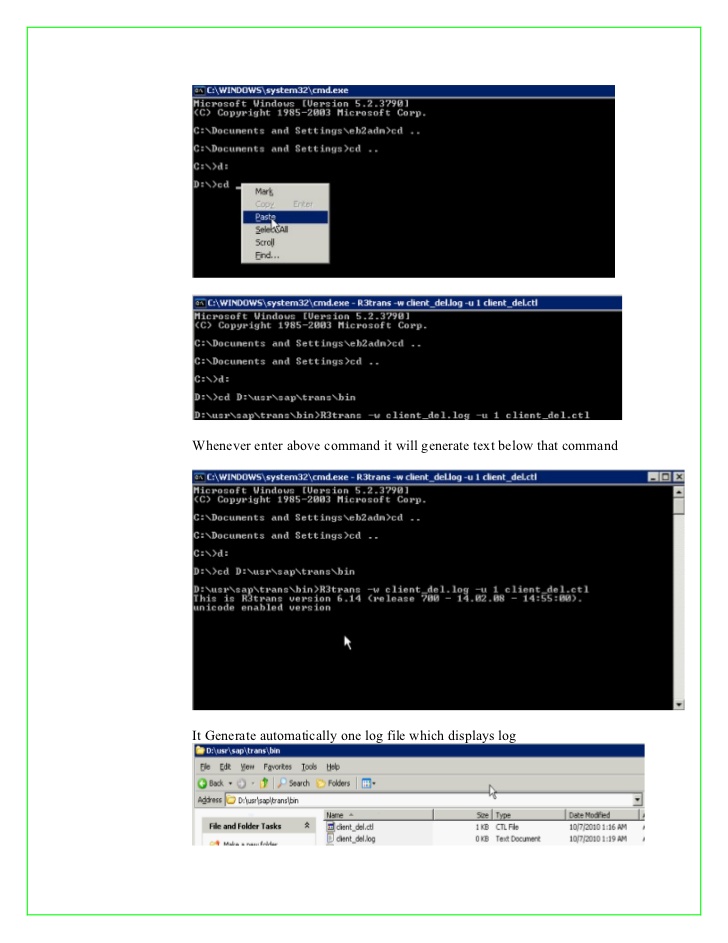
In the export phase, unconditional mode 1 indicates the system to ignore the wrong status of transport requests. While the −w flag indicates the log file, the −u flag sets unconditional modes for the transport. To avoid having to perform the whole client copy process, just the entries on table MOFF from the source client will be copied to the table MOFF on the target client 010 in the target system T12.ġ) In the source system (C12), create a control file, for example, expmoff.ctrl with the following content:Ģ) Run the R3trans utility with the previous control file: R3trans −w expmoff.log −u 18 expmoff.ctrl. Check the import log and the data in the target systemĪfter verifying the client copy log, due to some storage problems in table MOFF, this table could not be completely copied. Run the import control file in the target systemĦ. Create the import control file in the target systemĥ. Run the control file in the source systemĤ. The general procedure to do this is as follows:ġ. You can avoid having to perform a whole import again by transporting a single table with R3trans. The tp program could also be used however, the transport control program tp performs many additional checks and imposes some restrictions on the table types to be transported.įor example, assume that, after a client copy between two SAP systems, a table content could not be completely copied to the target system (import phase) because the table reached the maximum number of extents in the underlying database.

One of the most efficient is by using the R3trans utility.

Trans, SapDba, WP's under NT > 3.There are several ways to copy table entries between two different SAP systems. Oracle rollback segments, more information. Poor DML performance with Oracle DDIC statisticsĬC-INFO: Client copy for cluster table is slow

R3trans refuses import of a physical cluster

R3trans: Performance during import of table with INT fields Solution : (SAP Service marketplace login required)Ĭluster tables, table entries, performance problems, logical tables, physical clusters, physical cluster, target client, memory bottlenecks, logical cluster, r3trans, described under, transport request>, command, described above, performance losses, transport request, further details, r3trans control, rollback segments, logical table, transparent tables, contents, administration tools, array inserts, client, export import, update, table entry, target system, possible solution, client transport, cluster records, target clients, client select, client administration, following contents, r3trans release, clusters instead, transport clients, performance benefit, where, select tabname, select, import, cluster name>, database indices, internal tables, other processesĬomposite SAP Note: Performance optimization during import


 0 kommentar(er)
0 kommentar(er)
